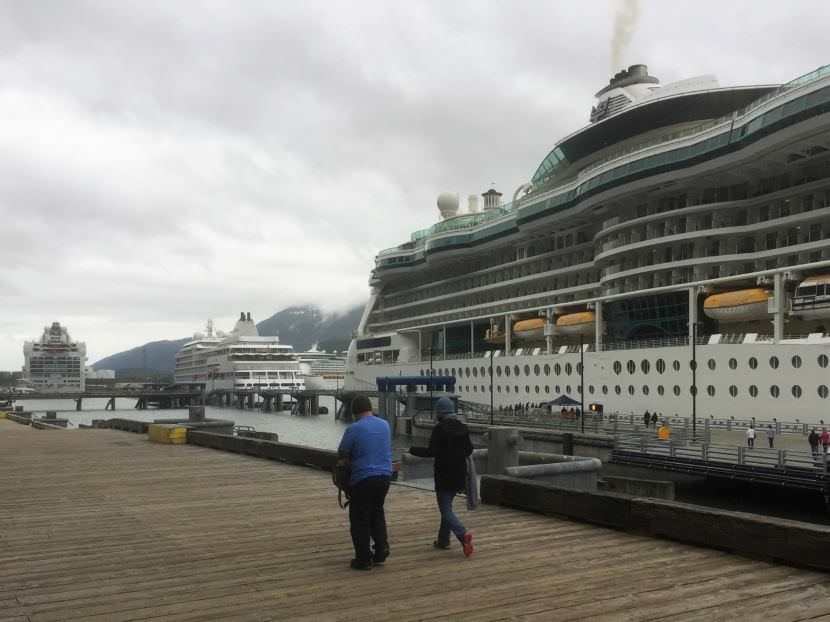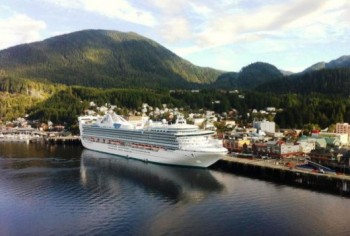
A federal lawsuit brought by the cruise ship industry against the City and Borough of Juneau says its passenger head tax is unconstitutional.
If the industry prevails it could impact the statewide passenger fee.
After a 18 months of litigation and at least $498,000 spent by the city in legal costs, the two sides are no closer to a resolution.
“We don’t dispute the collection of the fees. We don’t dispute those at all, it’s just the expenditures,” said John Binkley, president of Cruise Lines International Association Alaska, the industry group suing the city over how it spends the $8-per-passenger fee it collects.
He says the passenger and port development fees, are required by federal law to support cruise ship operations, not fund local vanity projects.
“And the city disagrees,” Binkley said. “They say it can be spent on things like the artificial island it built, the Whale Park, the airport or pretty much anything else it wants.”
The city argues that the industry reads the law too narrowly.
One example is seasonal crossing guards near the cruise docks; the city uses passenger fees to pay for them.
“We have a million people getting off the ships in the summer,” said City Attorney Amy Mead. “We think that crossing guards provide a service to the passengers because it enhances their safety and CLIA would disagree with that.”
But Binkley said his industry’s position is these fees are for port infrastructure – like a dock.
“Any of that money collected must be spent on a service to the ship because it’s a fee on the ship,” Binkley said.
(Actually, it’s a fee on the passenger that’s paid by the passenger. But that’s the gist of the dispute.)

In a filing last month, the cruise industry upped the ante. It asserts Juneau’s passenger fees are unconstitutional. It points to the Commerce Clause and Tonnage Clause, both of which give Congress the sole authority to regulate interstate commerce.
Mead said that shows the industry is seeking a ruling with a wider precedent.
“If it were just a Juneau case, their motion would be tied to very specific expenditures and this case would all be about very specific expenditures,” she said. “That is not how CLIA has fashioned this lawsuit. They challenge the constitutionality of the fees.”
The cruise industry opposed past citizen-led referendums in Juneau and statewide that created the head taxes.
An industry lawsuit against the state’s head tax was settled in 2010 after the Legislature slashed the passenger fee by 25 percent.
That seemed to settle the issue, but state lawyers are still watching the Juneau case with interest.
Juneau’s local law closely mirrors the state’s law – so precedent matters.
“By challenging the underlying constitutionality of a tax on cruise ship passengers, a victory by CLIA would establish a precedent,” Assistant Attorney General Chris Peloso said. “That could be useful in a future challenge against similar taxes levied by other municipalities, like Ketchikan, or a challenge against the state Commercial Passenger Vessel Excise Tax.”
In other words, it could open the flood gates to fresh challenges.
The cruise industry insists that’s not its aim. If the judge overturns Juneau’s passenger fees, Binkley said the industry would continue to pay the full amount to the state. And he says more funding might be available for other Southeast ports-of-call.
“The resources, we feel, are being not properly spent in Juneau, when they should be spent on port infrastructure in other, smaller communities,” Binkley said.
The Attorney General’s office hasn’t gotten involved.
But if the cruise industry’s lawsuit challenges the state’s passenger fee, Peloso said, the state would intervene.
